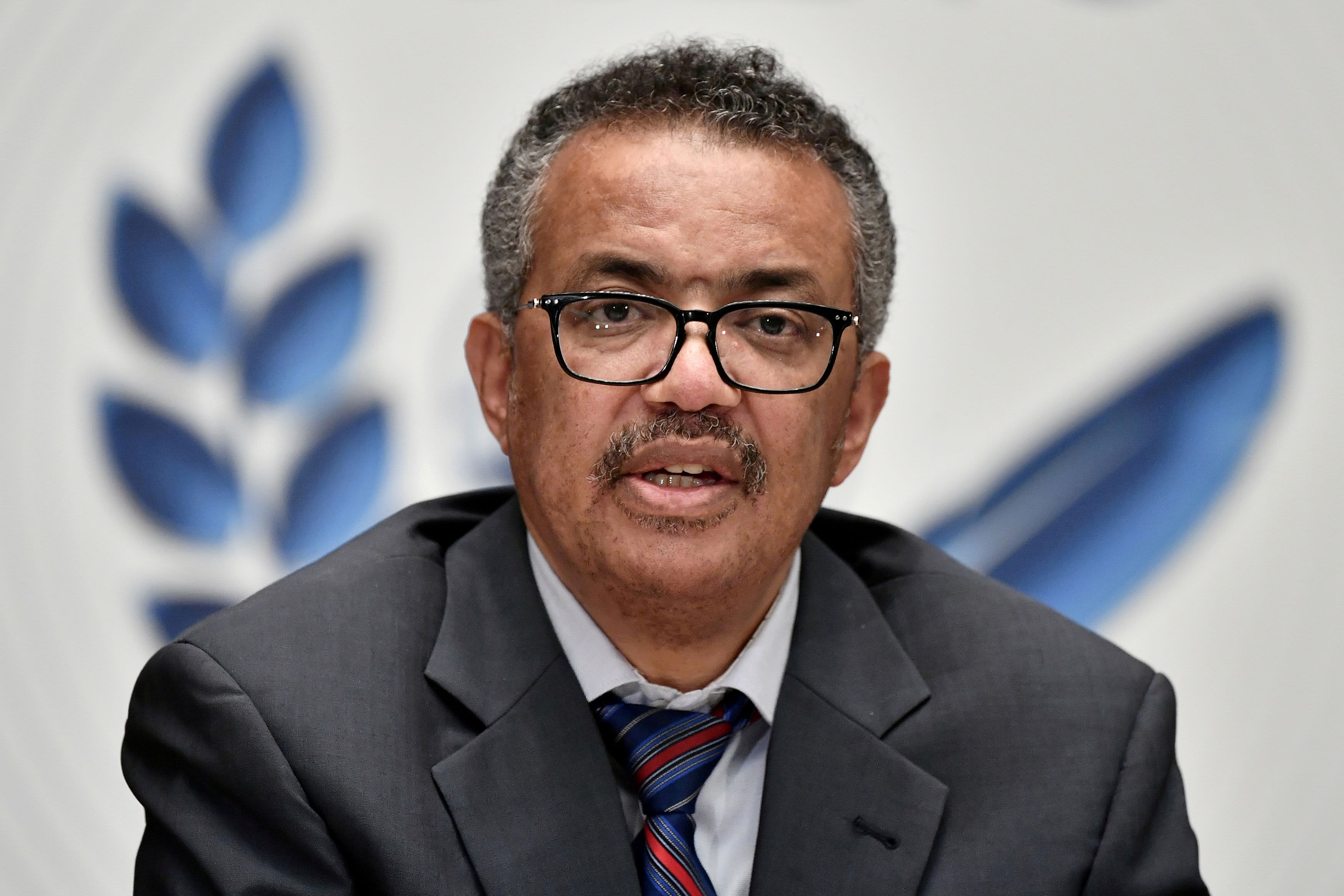WHO says vaccine booster programs will prolong Covid crisis: ‘No country can boost its way out of the pandemic’

World Health Organization (WHO) Director-General Tedros Adhanom Ghebreyesus attends a news conference organized by Geneva Association of United Nations Correspondents (ACANU) amid the COVID-19 outbreak, at the WHO headquarters in Geneva Switzerland July 3, 2020.
Fabrice Coffrini | Pool | Reuters
World Health Organization officials on Wednesday criticized blanket Covid-19 vaccine booster programs as poor countries struggle to obtain initial doses, warning that the unequal access to immunizations could lead to more mutated variants that drag out the crisis.
“Blanket booster programs are likely to prolong the pandemic, rather than ending it, by diverting supply to countries that already have high levels of vaccination coverage, giving the virus more opportunity to spread and mutate,” WHO Director-General Tedros Adhanom Ghebreyesus said during a press briefing Wednesday.
The comments from the WHO come as health officials in the U.S. promote vaccine booster shots for all residents over the age of 16 amid a surge in Covid cases driven by the omicron strain. Israel on Tuesday announced it would offer a fourth dose of the Covid-19 vaccine to people older than 60.
“We want people to be able to gather” over the holidays, CDC Director Dr. Rochelle Walensky said in an interview on CNN on Wednesday. “And safe gathering includes, of course, being vaccinated, ideally being boosted and making sure that all the people who you gather with are also vaccinated and boosted.”
Currently, the vast majority of Covid hospitalizations and deaths are among unvaccinated people, not vaccinated people without booster shots, according to Tedros.
“No country can boost its way out of the pandemic,” Tedros said.
Global health experts say the emergence of omicron is tied to vaccine inequality. Omicron is thought to have emerged from an HIV patient in South Africa where just 26% of the population is fully vaccinated, scientists have said. The virus mutates particularly well in people with compromised immune systems where it can live for a long time and figure out how to survive inside its human host.
Only half of the WHO member states have been able to vaccinate at least 40% of their populations by the end of this year “because of distortions in global supply,” Tedros said.
Vaccine inequity is “the most horrific injustice of 2021,” Dr Michael Ryan, executive director of the WHO Health Emergencies Programme, said.



